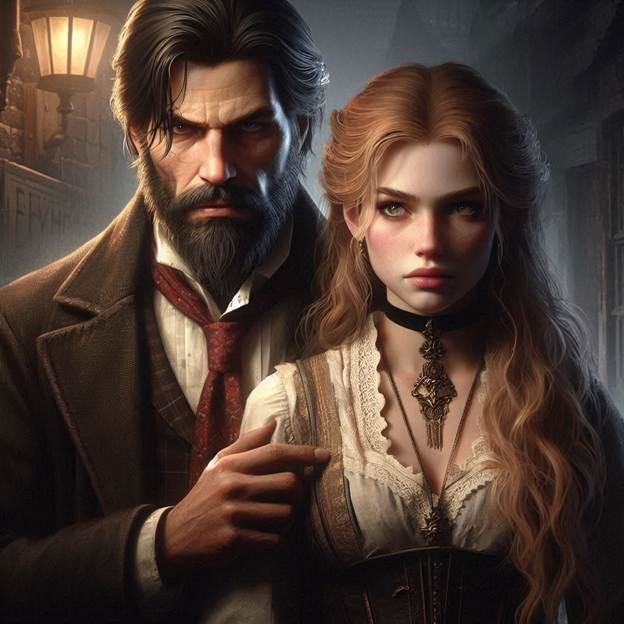Epilogue: Live Not by Lies1
For who to dumb Forgetfulness a prey,
This pleasing anxious being e'er resign'd,
Left the warm precincts of the cheerful day,
Nor cast one longing, ling'ring look behind?
On some fond breast the parting soul relies,
Some pious drops the closing eye requires;
Ev'n from the tomb the voice of Nature cries,
Ev'n in our ashes live their wonted fires.
Thomas Gray, Elegy Written in a Country Churchyard
I.
Near Pripyat
Ukrainian Soviet Federated Socialist Republic
1989
The guard took his job seriously, for the optimism of Glasnost made things more difficult in some ways, and German Greens, British reporters, American tourists, for God’s sake, felt entitled to barge right up to the security fence. Not a bad problem to have, he thought, for German beer, British music (the guard was especially fond of Motorhead), and American cigarettes made their way east with the new openness.
“What the fuck?”
His companion pointed toward the interior of the exclusion zone, and the guard turned to watch, his mouth agape. The newcomer carried an empty bag over one arm, its contents dumped near the hottest section of the reactor where none could withstand the radiation, and had the guard known what the bag contained, or the journey that it had taken to reach the exclusion zone, he could scarcely have been more surprised. Rupert Holmes stumbled to one knee, and though his skin was red and blistered from the radiation burns, he smiled with quiet satisfaction.
“I think this is far enough,” he said. “Perhaps there’s magic left in that old castle, but he has a new grave now, and no one will risk digging up the bones from their resting place. You can shoot me if you like, but my time is short no matter what.”
The guards notified an officer, and though the ensuing calls stirred a brief panic in Moscow, the Politburo ruled against a formal protest to London. The spy – if that was what he had been – was clearly mad, for nothing of importance could be gained by his journey into the exclusion zone, and in the end, they simply buried him where he had fallen, the unknown occupant of a lead-lined coffin so heavy that a crane was required to lower it into the grave.
II.
London
They were detained in Warsaw and again in Bonn, but Archie Spencer and Evangeline Morris worked their magic, and within a week, they were free. Now, Katrina wandered the old cemetery, breathing the autumn air. “He needs a sponsor, but our deserter’s application for political asylum will go through quite easily. A shame that you’re leaving for America – I think he fancies you.” Albert Bud knew no Dutch and perhaps fifty words of English, but the idea was enchanting. She had hoped to leave Europe behind forever, but Imperial College had offered her a spot at their School of Medicine –
A mangy dog emerged from the bushes and approached tentatively, head down but wagging its tail. It needed a bath, and God only knew what kind of parasites it carried, but it nuzzled her leg, surprisingly fearless, as Katrina held out a hand. Sometimes you have to jump in and swim.
She kept the dog.
III.
Romania
December 25, 1989
The Revolution had spread across the country, and when the Securitate could no longer maintain order, he fled from Bucharest to Snagov and boarded a helicopter for Târgoviște. He had a final moment of hope as the fighter jets flew past, but his heart sank as he listened to the radio chatter. They aren’t here to save us, Nicolae Ceausescu thought. They’re forcing us to land.
The trial was a brief affair, and though no one could agree on the numbers, Mihai Suta argued that it hardly mattered whether he had murdered a million or only a thousand – either way, justice needed to be done. The deposed president paid little attention to the colonel, for his own eyes were upon a couple at the back of the room – the man with the heavy mustache and the beautiful woman with dark curls. He argued his own case for an hour, his eyes upon the man, and when Ceausescu was finished, the tribunal sentenced him to death, as he had expected. No matter, he thought. Someday, I will be remembered as a martyr to the Revolution. As he was moved to the block wall, he scanned the onlookers for the man and woman, certain that they were watching. Ceausescu hoped for the chance to make a final speech, but the rifles were raised as his handlers moved away, and after an instant of pain, it was over.
In the following weeks, the new government found a curious set of records among the flotsam and jetsam of the Presidential Palace, and a team of soldiers (Colonel Mihai Suta politely declined an offer to command the expedition) was sent into the mountains. The castle was easy to find, for its shattered bones held no further sway over time and space, and its power to mislead was vanquished. They crawled over the ruins and though the stones were scorched, grass grew in the flagstones of the courtyard, within the broken rubble of the walls, and on the plateau outside. It was, perhaps, the old castle’s final trick, for by all appearances, no battle had taken place for a hundred years.
No one knew what became of the man and woman.
https://www.solzhenitsyncenter.org/live-not-by-lies

